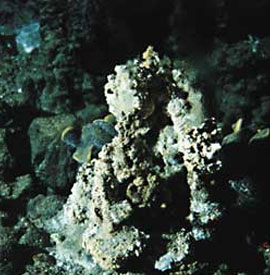Metal Ores
Metal ores

A mineral which contains a high enough percentage of a metal for economic extraction is called a metal ore.
The most common metal ores are oxides and sulphides. Sulphides are the oldest ores, formed in the Earth's history when there was a lot of sulphur from volcanic activity. Oxides formed later when photosynthesis in plants released large amounts of oxygen into the atmosphere.
Important ores of aluminum, iron, manganese, and tin are oxides; important ores of antimony, copper, lead, mercury, nickel, silver, and zinc are sulfides. Some metals, called native metals, occur uncombined in nature, e.g., copper, gold, platinum, and silver. The recovery of metals from their ores is one area of the field of metallurgy.
Metal ore deposits are a finite resource (there are only a certain amount of them) and non-renewable (once used, they are gone and will not be replaced).
Many metals are obtained today from recycling (melting and refining) scrap metals. About half of the aluminium, copper, lead, steel and tin which are used in the UK come from recycled scrap metal.